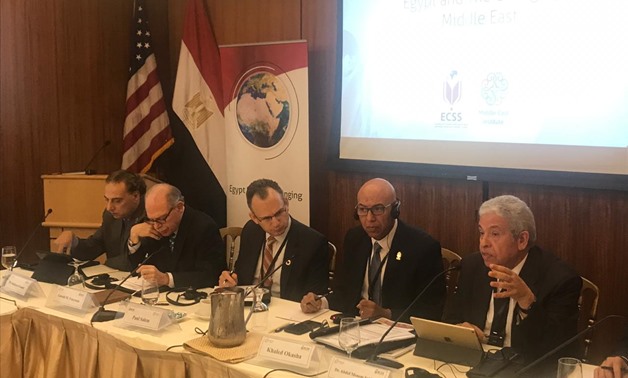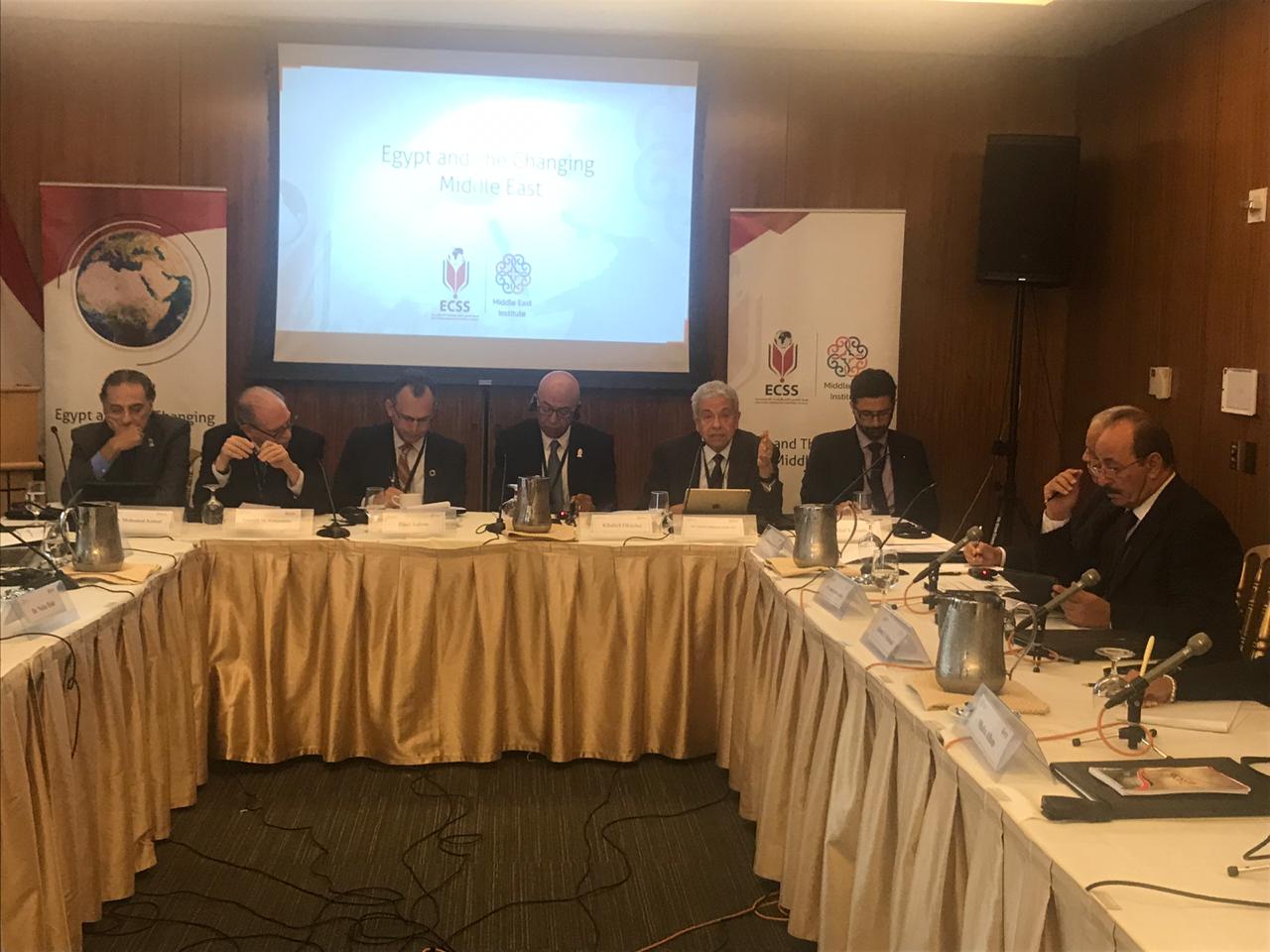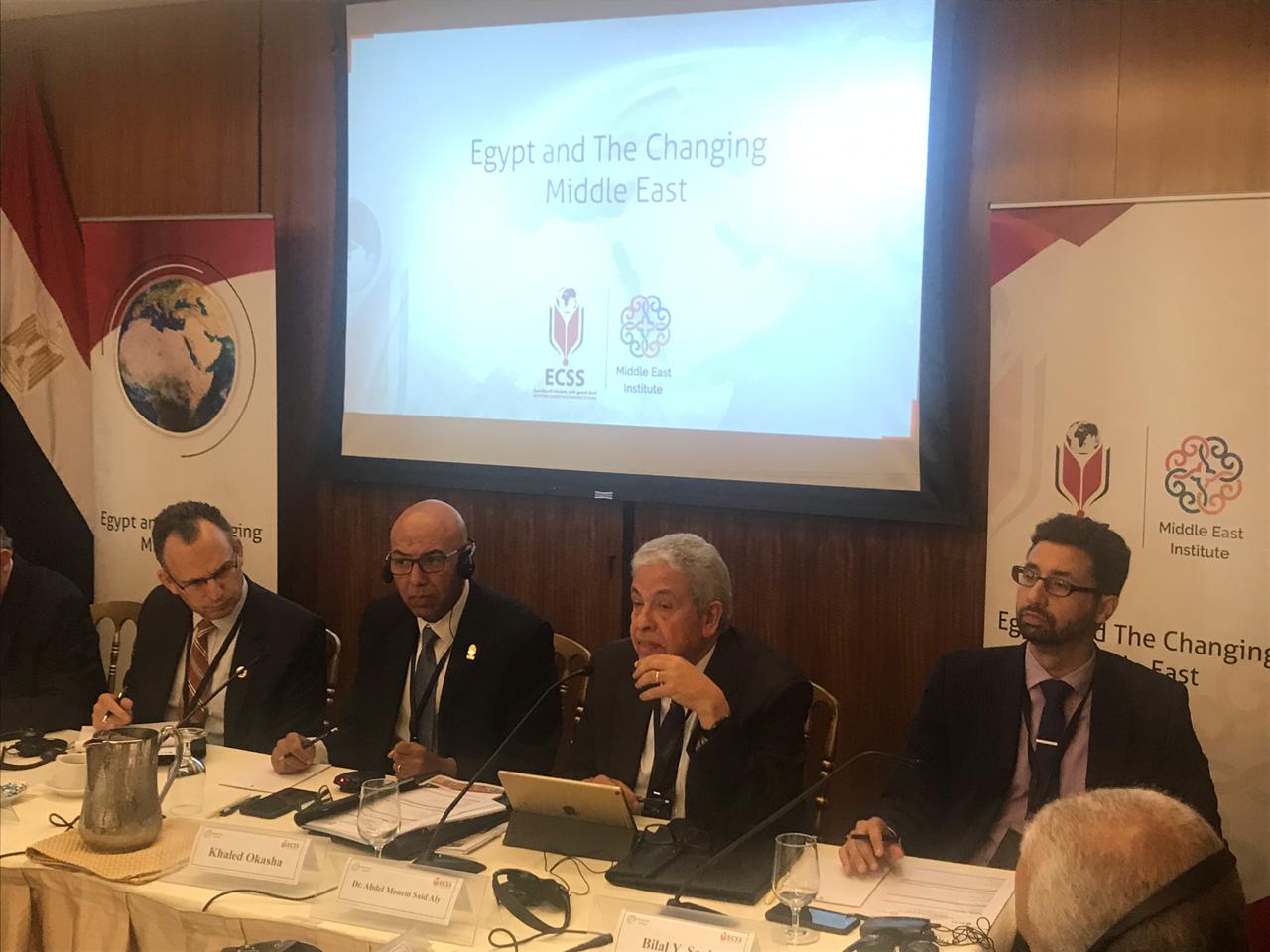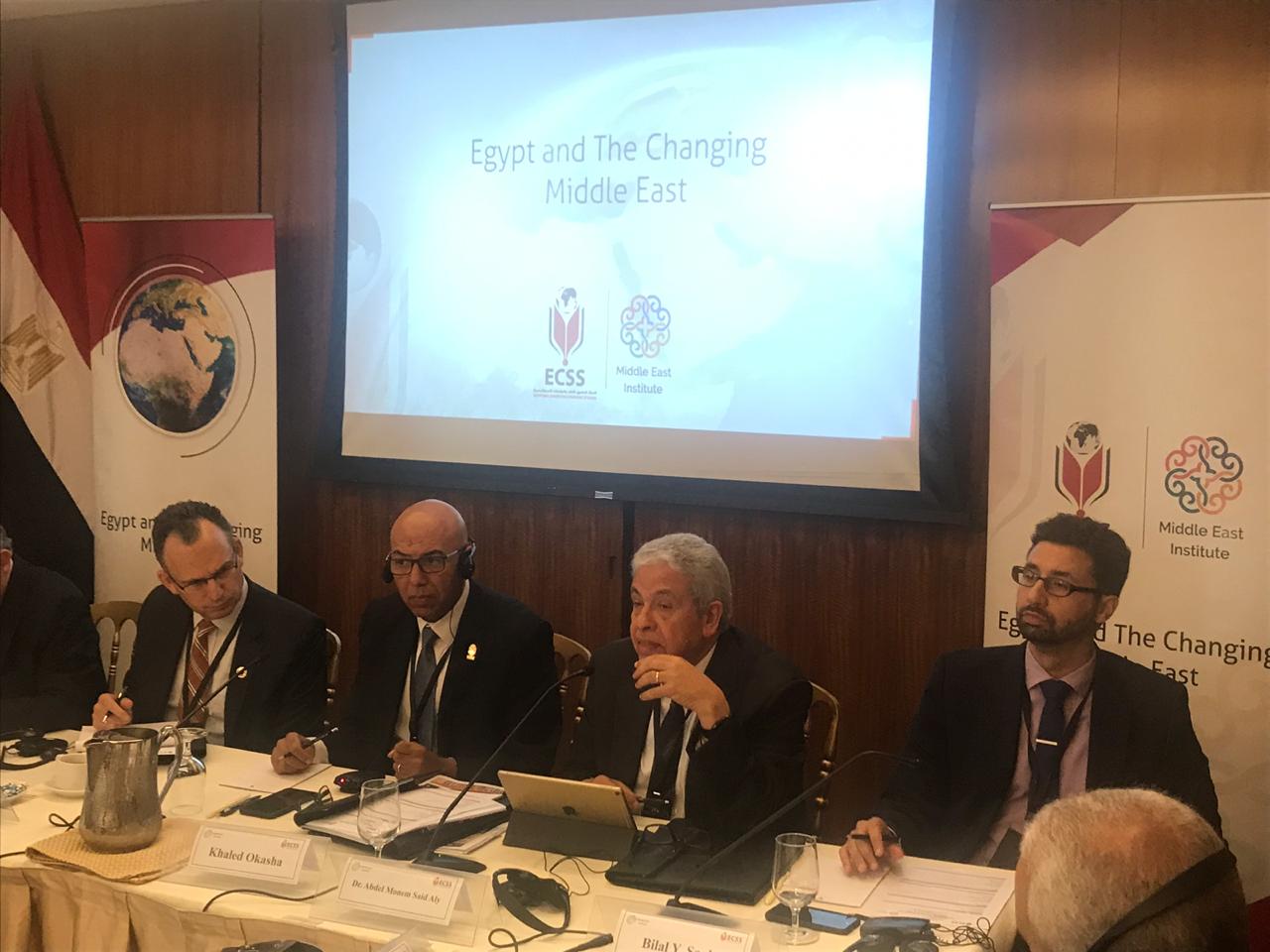
The Middle East Institute, in coordination with the Egyptian Center for Strategic Studies, has held a conference in New York on Wednesday (Sept. 25), in participation with a number of experts from both Egypt and the US, on the sidelines of the high-level
CAIRO - 25 September 2019: President of the Washington-based Middle East Institute Paul Salem on Wednesday called for granting Egypt the leadership role to tackle the Middle East issues instead of the United States.
Salem said that the region has for so long depended on the US to resolve its issues, especially the Palestinian-Israeli conflict and the issue with Iran, adding that Egypt, as the biggest Arab country, can play this role in the region.
The Middle East Institute, in coordination with the Egyptian Center for Strategic Studies, has held a conference in New York on Wednesday (Sept. 25), in participation with a number of experts from both Egypt and the US, on the sidelines of the high-level meetings of the UN General Assembly.

A coalition consisting of Egypt, Saudi Arabia and the United Arab Emirates has to be formed, in order to be able to deal with Arab divisions especially in the Gulf region, Salem said.
The region must not depend on Senior Advisor to the President of the United States Jared Kushner and his initiative when resolving the Palestinian cause, Salem said, adding that this Arab coalition has to strongly interfere in such issue without hesitation.
Speaking about Turkey, Salem said that it is one of the key players in the region, but sadly, he policies of the ruling party, led by the Muslim Brotherhood members, have caused problems with the Arab countries, according to Salem.
Salem added that a mechanism for communication can be established between the planned Arab coalition and both peoples of Turkey and Iran.
He affirmed that the Egyptian leadership seeks democracy and works on achieving economic reforms at the local level.
For his part, Khaled Okasha, head of the Egyptian Center for Strategic Studies, said that the Middle East region is suffering very different kinds of threats and geopolitical and strategic reactions.

Concerning terrorism, Okasha said that the defeat of the Islamic State (IS cannot mean the entire elimination of the terrorist group as an ideology or as an organization. He explained that the IS is working to establish new strategies that would guarantee its survival and also the spread on the borders of the region.





Comments
Leave a Comment